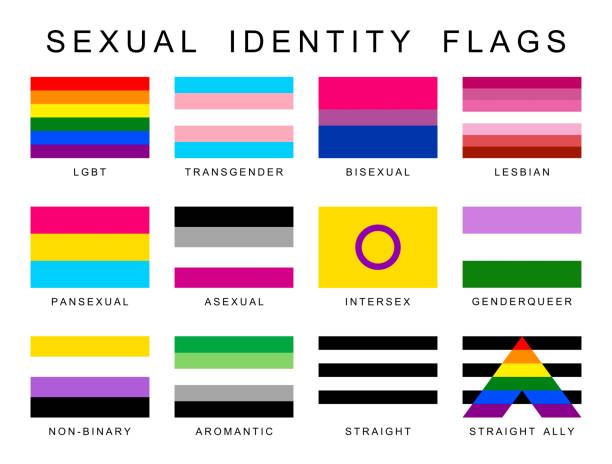-
Table of Contents
Exploring sexual identity through sexting: A digital journey of self-discovery.
Sexting, the act of sending sexually explicit messages, photos, or videos via electronic devices, has become increasingly prevalent in today’s digital age. While it is often associated with negative connotations, sexting can also play a significant role in exploring and understanding one’s sexual identity. This essay will delve into the various ways in which sexting can contribute to the exploration of sexual identity, including self-expression, experimentation, and communication.
The Psychological Impact of Sexting on Sexual Identity Exploration
The Role of Sexting in Exploring Sexual Identity
In today’s digital age, sexting has become a prevalent form of communication among young adults. While it is often associated with negative connotations, such as privacy concerns and potential legal ramifications, there is another aspect of sexting that is often overlooked – its role in exploring sexual identity.
Sexual identity is a complex and deeply personal aspect of an individual’s life. It encompasses one’s sexual orientation, gender identity, and the way they express their sexuality. For many young adults, sexting can serve as a safe and private space to explore and express their sexual desires and preferences.
Sexting allows individuals to experiment with different aspects of their sexuality without the fear of judgment or rejection. It provides a platform for self-discovery and self-expression, allowing individuals to explore their desires and fantasies in a controlled environment. By engaging in sexting, individuals can gain a better understanding of their own sexual preferences and boundaries.
Furthermore, sexting can also play a role in the formation of sexual identity by providing a sense of validation and acceptance. In a society that often stigmatizes non-heteronormative sexualities, sexting can offer a space where individuals can freely express their desires without fear of discrimination. This can be particularly empowering for individuals who are questioning their sexual orientation or gender identity.
However, it is important to note that the psychological impact of sexting on sexual identity exploration can vary greatly from person to person. While some individuals may find it liberating and empowering, others may experience feelings of guilt, shame, or anxiety. It is crucial to approach sexting with caution and ensure that all parties involved are consenting and comfortable.
Moreover, it is essential to recognize that sexting is not a substitute for real-life sexual experiences or relationships. While it can provide a platform for exploration, it is important to engage in open and honest communication with partners about boundaries, consent, and expectations. Sexting should never be used as a replacement for genuine human connection and intimacy.
Additionally, it is crucial to educate young adults about the potential risks and consequences of sexting. Privacy concerns, such as the possibility of images being shared without consent, should be addressed. It is important to emphasize the importance of consent and the need for open communication in any sexual interaction, whether it be online or offline.
In conclusion, sexting can play a significant role in exploring sexual identity. It provides a safe and private space for individuals to experiment with their desires and preferences, allowing for self-discovery and self-expression. However, it is important to approach sexting with caution and ensure that all parties involved are consenting and comfortable. Sexting should never be a substitute for genuine human connection and intimacy. By educating young adults about the potential risks and consequences of sexting, we can promote healthy and responsible sexual exploration.
Sexting as a Tool for Self-Discovery and Sexual Expression
The Role of Sexting in Exploring Sexual Identity
Sexting has become a prevalent aspect of modern-day communication, particularly among young adults. While it is often associated with negative connotations, such as privacy breaches and exploitation, there is another side to sexting that is often overlooked – its role in exploring sexual identity. Sexting can serve as a tool for self-discovery and sexual expression, allowing individuals to explore and understand their desires and preferences in a safe and consensual manner.
In today’s digital age, where technology has become an integral part of our lives, it is not surprising that it has also influenced our sexual experiences. Sexting, the act of sending sexually explicit messages, photos, or videos via electronic devices, has gained popularity among individuals of all ages. However, it is particularly relevant for young adults who are in the process of discovering their sexual identity.
One of the primary reasons sexting can be a valuable tool for self-discovery is its ability to provide a safe space for individuals to explore their desires and fantasies. In a society that often stigmatizes discussions about sex and sexuality, sexting allows individuals to express their desires without fear of judgment or shame. Through sexting, individuals can experiment with different roles, scenarios, and fetishes, helping them gain a better understanding of what arouses them and what they find pleasurable.
Moreover, sexting can also serve as a means of communication and connection with others who share similar interests and desires. It allows individuals to connect with like-minded individuals who may be experiencing similar questions and uncertainties about their sexual identity. By engaging in sexting conversations, individuals can exchange ideas, experiences, and advice, creating a supportive community that fosters self-acceptance and exploration.
Furthermore, sexting can help individuals overcome inhibitions and build confidence in their sexual expression. For many, discussing their sexual desires and preferences face-to-face can be intimidating and uncomfortable. Sexting provides a level of anonymity and distance that can alleviate these anxieties, allowing individuals to express themselves more freely. By engaging in sexting, individuals can gradually build their confidence and become more comfortable with their sexual identity, ultimately leading to healthier and more fulfilling sexual experiences.
It is important to note that sexting, like any form of sexual expression, should always be consensual and respectful. Consent is crucial in any sexual interaction, including sexting. Both parties involved must willingly and enthusiastically participate, ensuring that boundaries are respected and communication is open. Consent should be ongoing and can be withdrawn at any time. It is essential to establish clear boundaries and expectations before engaging in sexting to ensure a positive and safe experience for all involved.
In conclusion, sexting can play a significant role in exploring sexual identity. By providing a safe space for self-expression and experimentation, sexting allows individuals to discover and understand their desires and preferences. It fosters communication and connection with like-minded individuals, creating a supportive community that encourages self-acceptance and exploration. However, it is crucial to remember that consent and respect are paramount in any sexual interaction, including sexting. With these considerations in mind, sexting can be a valuable tool for individuals on their journey of self-discovery and sexual expression.
Understanding the Ethical and Legal Implications of Sexting in Sexual Identity Exploration
The exploration of sexual identity is a deeply personal and complex journey that individuals embark upon throughout their lives. In recent years, the rise of technology and the widespread use of smartphones has introduced a new element to this exploration: sexting. Sexting, the act of sending sexually explicit messages or images electronically, has become increasingly prevalent among young adults and teenagers. While sexting can be seen as a means of self-expression and sexual exploration, it is important to understand the ethical and legal implications that accompany this practice.
One of the key ethical considerations surrounding sexting is consent. Consent is the cornerstone of any healthy sexual relationship, and this principle applies to sexting as well. It is crucial that all parties involved in sexting give explicit and informed consent. This means that individuals must be of legal age and fully aware of the potential consequences of their actions. Without consent, sexting can easily cross the line into non-consensual distribution of explicit content, which is both unethical and illegal.
Another ethical concern related to sexting is the potential for exploitation. In some cases, individuals may be coerced or pressured into sending explicit images or messages against their will. This can lead to feelings of shame, guilt, and violation. It is important to recognize and address these power dynamics to ensure that sexting remains a consensual and empowering act.
From a legal standpoint, sexting can have serious consequences. In many jurisdictions, the distribution of explicit content, especially if it involves minors, is considered child pornography and is subject to strict legal penalties. This means that individuals who engage in sexting, even if they are minors themselves, can face criminal charges and have their lives forever impacted. It is crucial for young adults and teenagers to be aware of the legal implications of sexting and to make informed decisions about their actions.
Understanding the ethical and legal implications of sexting is essential for individuals who are exploring their sexual identity. It is important to approach sexting with caution and to be aware of the potential risks involved. Open and honest communication with partners is crucial to ensure that all parties are comfortable and consenting. Additionally, seeking guidance from trusted adults or professionals can provide valuable insights and support during this exploration.
While sexting can be a tool for sexual self-expression and exploration, it is important to remember that it is not the only means of discovering one’s sexual identity. There are many other ways to explore and understand one’s desires and preferences, such as engaging in open and honest conversations with partners, reading educational resources, or seeking guidance from professionals in the field of sexuality.
In conclusion, sexting can play a role in the exploration of sexual identity, but it is essential to understand the ethical and legal implications that accompany this practice. Consent, respect, and communication are key principles that should guide individuals in their sexting experiences. By being aware of the potential risks and seeking guidance when needed, individuals can engage in sexting in a consensual and empowering manner. Ultimately, the exploration of sexual identity should be a personal and positive journey, and sexting can be one tool among many to aid in this process.In conclusion, sexting can play a significant role in exploring one’s sexual identity. It allows individuals to express their desires, preferences, and boundaries in a safe and consensual manner. Sexting can provide a platform for self-discovery, experimentation, and communication about one’s sexual orientation and interests. However, it is crucial to prioritize consent, privacy, and responsible behavior while engaging in sexting activities.


